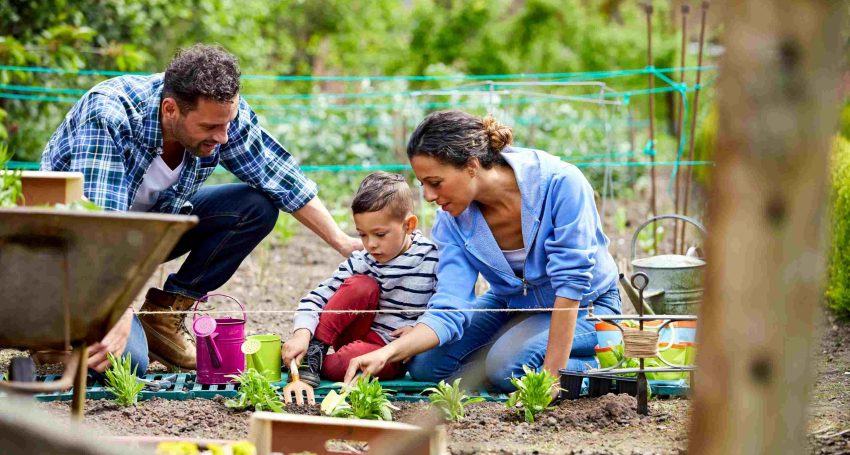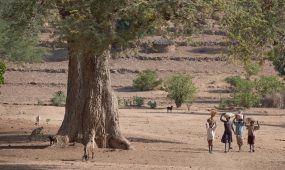Easter Day
International
“Gardens do not fight nature: they harness it. So, too, it is with God and us. Where we could go wild and choke all other growth, he checks us. Where we would shrivel and give up for lack of light and space, he gently promotes our ability to grow,” says The Rev’d Dr Cally Hammond

Way back in 1.38, John reported Jesus’s question “What are you looking for?” On Easter morning, Jesus asks it in a new way, in a new world. It is no longer “what” but “whom” — “Whom are you looking for?”
Matthew (7.7) and Luke (11.9) recorded the same verb (zetein: “search”, “look for”) when Jesus promised: “Search and you will find.” Augustine set their promise at the end of his Confessions, an exhortation for all who are searching, as he did, long ago, for wisdom.
That wisdom is not a quality. It is an identity. We know that Christians saw Jesus in these terms from early times. Paul calls Christ “the power of God and the wisdom of God” (1 Corinthians 1.21, 24). It may not be easy to see human individuals as embodying such identities. But, by the end of John’s Gospel, we are used to thinking of Christ in terms of abstracts and symbols: the true bread; the way, the truth, the life; the vine. Jesus himself taught us to see him in this way. But we may not yet realise the full import of those apparent abstracts.
On Good Friday, I reflected on the Gospel-symbol of the garden. But that was only the beginning. John’s garden symbolism comes to completion on Easter Day. Mary Magdalene, he tells us, came to the garden, to the tomb, while it was still dark. Then she went to tell the disciples, and they came back together. After they witnessed the empty tomb, the disciples went home, leaving Mary behind.
Like every mourner who has ever stood at a graveside, or where a loved one’s ashes have been scattered, she knew that the one she loved was not “there”. But this was still as close as she felt she could now come to him. If she wanted to feel that bond of love, this was the only place to be. In that sense, every Christian burial is a cenotaph, an “empty tomb”. What lies within is earth, ashes, dust. The person is not there. But such is the power of human love that even earth, ashes, and dust have power to awaken in us remembrance and connection.
Advertisement
Surely every reader of John’s Gospel has some inkling of this mystery, the presence of the absence of a loved one. But Mary was about to learn something further. It would change her mourning into gladness. It can make our lives something that they could not have been before. In this Easter-morning garden, all three of Paul’s “things that last for ever” are present: faith, hope, and love. Love shone in Mary: it found its reward in a blessing for her which also descends on all of us, who are her descendants according to the Spirit.
All this happened in a garden. Gardens, remember, are not natural. Let nature have its way, and you soon have scrubby bushes and rampant weeds. A garden is an end-product, not of a battle against nature, but of a nurturing of nature. Tending, trimming, supporting; giving light where required; suiting each planting to its environment — why else is God, before he is anything else to us, a gardener?
Gardens do not fight nature: they harness it. So, too, it is with God and us. Where we could go wild and choke all other growth, he checks us. Where we would shrivel and give up for lack of light and space, he gently promotes our ability to grow.
Advertisement
Now for the great change that is Easter Day. In his relationship with humankind, God has been a gardener from the beginning. What Easter Day reveals first is not unexpected: the true identity of the man Jesus, who turns out to be the Son of Man, God’s anointed, and his eternal Word. But then it slips in a revelation, by means of a mere explanatory phrase: “supposing him to be the gardener”.
Mary is not mistaken. Her perception is accurate. The being she encounters is, indeed, a gardener, like his Father before him. Anyone can work in a garden. But the gardener is the one who has responsibility for it, making it flourish, keeping it fruitful and in balance. Their sharing in being gardeners is one tiny pointer to the likeness of nature between the Father and the Son. It paves the way for the revelation of God’s complete nature as Holy Trinity.
First published on the Church Times website on 22 March 2024. Visit the Church Times news site to subscribe today.





